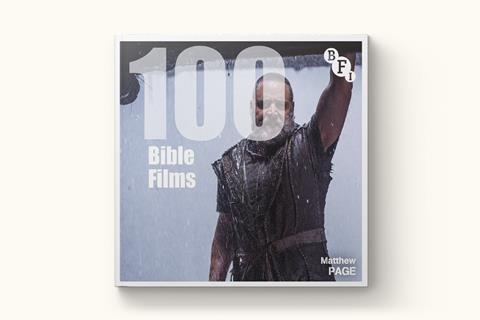
Matthew Page’s impressive book on the history of scripture adaptations is a Christian cinephile’s dream, covering everything from five-minute silent films to four-hour Italian epics.
A helpful introduction explains that he watched far more than 100 films in researching this book, but selected these for their historical significance, artistic merit or unusual focus.
Page approaches sensitive issues thoughtfully. It’s too easy for modern writers to dismiss the attitudes of the past, but Page chooses to acknowledge them as flaws, while still recognising the value of the films that depict them.
Antisemitism and sexism are recurring tropes in cinematic adaptations of the Bible, and Page’s insightful writing helps the reader to contextualise these issues and, perhaps, confront our own received biases as a result of consuming stories told this way.
Best of all, Page examines how films can give us a fresh perspective when trying to understand the Bible. Literal adaptation of scripture is almost impossible and, Page argues, often not a desirable goal.
He examines how artistic licence is valuable in creating emotional resonance; filmmakers can help us feel the truths of the Bible through their craft, and Page is at his best when showing us how they do that.
The appeal of this book might be limited to those already invested in cinema, especially as Page regularly uses technical terms. For those who believe the medium should be taken more seriously, it is an insightful addition to your bookshelves.






































No comments yet